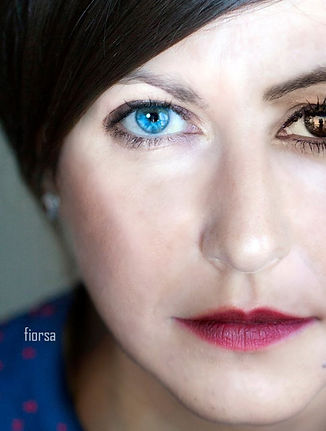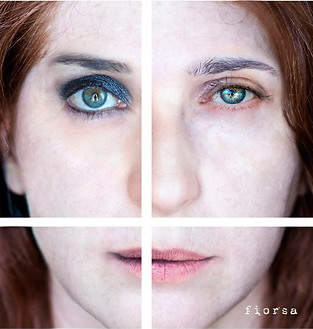The Story Behind 'Uccidi Anche Me' (Kill Me Too)
interview | November 2015



“It wasn’t always easy to choose what I thought was the right way to take. And I wasn’t even sure that the perception that the others could have had, would have been similar to mine.”
With these words, Fiorella Sanna, an Italian professional photographer, explains her challenges when she made the brave decision to embark in a brand new photo-journalistic project about femicide, called ‘Uccidi anche me’ (Kill me too).
In Italy, in 2012, more than 120 women were killed in the family and household environment. As this trend tended to grow in the following year, it was necessary to increase awareness as much as possible. Ms Sanna with the collaboration of the journalist Francesca Madrigale “were shocked and concerned about the large disturbing numbers of murders of women by partners, ex-boyfriends and husbands.”
Although in 1981, the so-called ‘delitto d’onore’ (Honour killing) was eliminated, in today’s society it is still possible to read news about passion crimes, in which in most of the cases, the woman tends to be considered as an object, a target easy to manipulate.
As a result, they had been working on this project for over a year before they managed to bring it to life in 2013. Since then, several exhibitions have taken place in some of the Cagliari’s major theatres and museums as well as elsewhere in the region but the two curators would like to spread it even overseas.
This ‘work in progress’ project aims firstly at creating a collective participation to fight violence against women in any of its forms, and secondly at reflecting the general relationship between man and woman. There is something different and unique about the way ‘Uccidi anche me’ suggests such a delicate topic. It approaches it with innocent but powerful portraits, capturing people’s emotions and expressions.
“As the importance and sensibility of the subject was more and more often manipulated, I felt a great responsibility for what I was trying to convey”, Fiorella says. “As a result, I chose the thing I’m more passionate about photography: the portrait.”
A simple close-up of a person encloses a strong meaning behind their looks, sucking the viewer into a vortex of emotions. Fiorella decided to focus on the face of her subjects, giving it an original and effective form: overlapping multiple faces with each other would “give a single portrait a much stronger intensity.” As Fiorella explains, “the result was a harmonious face but particularly dramatic and intense at the same time.”
Especially, the eyes seem to become the actual portal towards a world of struggles and pains; the eyes are the mirror of the soul. The use of powerful colours and lights help extract the energy and strength from each portrait. In addition, they do not show any sign of violence on their skins because both the photographer and the journalist wanted to create a “non-violent campaign” aimed at rejecting the common female image, usually represented with bruises, blood and swellings.
“The woman tends to be always depicted as the victim and the man as the executioner; this results in a useless and not at all effective way of approaching the problem”, Fiorella says.
The title itself might be the only violent aspect within the whole project but Fiorella clarifies that “it was meant to be provocative! I especially care about the respect of my subjects and their dignity.” However, it was also supposed to “give a sense of solidarity” and “since this issue was mainly cultural, we thought it was right to get both genders involved”, she says.
In fact, men have generously joined the project not only with their opinions, experiences and ideas but also with their look and expressions. Fiorella was intrigued in exploring in depth “the complexity and diversity of the two genders’ physical features”, considering the understanding of such diversity “the foundation of a personal enrichment.”
As writers tell their stories through the flow of words, Ms Sanna has always had a need to communicate hers in a more creative and visual way. Anything could be her inspiration: a cinema, a dream or a vision. “I think that everyone tends to absorb even unconsciously what they’ve experienced, seen and read”, she says. “But sometimes, the best inspiration can also come from myself!”
Fiorella grew up in Cagliari, capital of Sardinia, where after studying Media and Communication and Acting, she approached the ‘scene’ and music photography in a first instance. However, only 5 years ago, her passion became her job. Her artistic interest is mainly based on a photographic research; “everything, that conveys me particular emotions, can be effective!”, Ms Sanna explains.
Nevertheless, the photographer appears to be more interested in combining her portraits with important social causes. The ‘Uccidi anche me’ project was not the only one aimed at denouncing the many injustices in the Italian society. Indeed, in 2010, Fiorella created a high level of engagement with her first photographic project called ‘Eroi’ (Heroes).
“I used to work for a company called ‘Video on line 2’. In 2010, the closure of this company led to a job loss of nearly 500 employees”, she says. Her words enclose a bit of sadness and bitterness in remembering those difficult times, “I saw the desperation and the anger that gripped my colleagues.”
She then concludes, “sometimes, the best projects come from a tangle of emotions and anxieties and this was the case: we wanted to denounce this shocking situation.” Consequently, she managed to draw the attention of important institutions as well as the public in a way she would never have imagined.
‘Uccidi anche me’, though, managed to collect around 120 portraits and more than 70 interviews thanks to friends, musicians, actors, artists, journalists and ordinary people who “for just one day, decided to stop their businesses in order to help the cause, as this was their main priority!” In her emotional words, there is a sense of hope and gratitude because it is not always easy to pursue something that “other people might not appreciate as much as you do.”
Femicide is a real and more complex problem that affect any level of modern society but as Fiorella says, “there is a unique value that has emerged from it: the collectivism, the multitude and the comparison as a mean to understand and fight violence.”